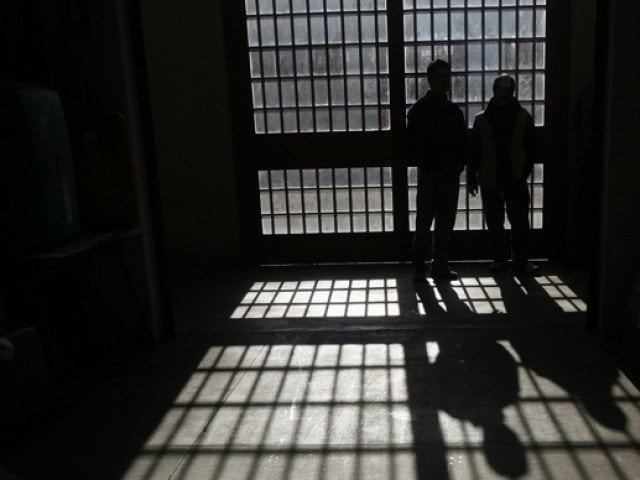LHC CJ seeks SOPs on rights of condemned prisoners
Says no one can be deprived of fundamental rights guaranteed under the Constitution of Pakistan

Representational image. PHOTO: FILE
The CJ issued the directives while hearing the matter of a convict to decide one of the four points of his petition. The man had been hanged three years and 10 months ago. The rest of the three points of his petition had been addressed in his life by the then chief justice of Lahore High Court owing to being of urgent nature, while the fourth point had been pending since long.
LHC CJ Justice Mamoon Rashid Sheikh remarked that no one could be deprived of his fundamental rights guaranteed under the Constitution of Pakistan.
The CJ was hearing a petition filed by Justice Project Pakistan on behalf of the brother of a juvenile offender, Muhammad Sarfraz, who was denied the right to meet his lawyer and sign a power of attorney just five days before his scheduled execution.
Muhammad Idrees, brother of convict Sarfraz, in his petition filed in 2016, had sought a direction to the then government of Punjab for duly attesting any power of attorney required to be executed by the petitioner’s brother from time to time in accordance with the law.
Secondly, the petitioner had also sought a direction to the then superintendent of Adiala Jail to permit the petitioner’s brother access to legal counsel in accordance with the law.
Thirdly, administrative action was sought against the Punjab government and the then superintendent of Adiala jail Rawalpindi for neglect of their legal duties and obligations and for breach of the Constitution.
In the fourth point, the convict’s brother had sought issuance of a declaration for the interpretation of Article 10-A that guarantees that any prisoner has a constitutionally guaranteed right to meet his legal counsel and have a power of attorney signed and duly attested in order to pursue any relief for the enforcement of his fundamental rights throughout the course of his imprisonment.
On Thursday, representing the petitioner, Barrister Sarah Belal argued that Article 10-A of the Constitution guarantees a prisoner’s right to meet his counsel and have a power of attorney signed and duly attested. This right is inviolable throughout the course of the prisoner’s imprisonment.
She further apprised the court that the number of days between an execution warrant and hanging in Punjab was reduced from between 14 and 21 days to between three and eight days in 2014.
After a warrant is issued, a prisoner is left to count the remaining days of his life. At such a time, every minute is crucial and any delay in their legal representation amounts to a gross violation of their fundamental rights.
She contended that convict Muhammad Sarfraz was 17 years old when he was arrested. Five years later, he was sentenced to death by District and Sessions Court, Gujar Khan in 1998, prior to the promulgation of the Juvenile Justice System Ordinance, 2000.
His execution was scheduled to be carried out on March 22, 2016, after which his family was not allowed to get a power of attorney signed by the jail officials at Adiala Jail, Rawalpindi. The case was adjourned till February 6.
Published in The Express Tribune, January 31st, 2020.


















COMMENTS
Comments are moderated and generally will be posted if they are on-topic and not abusive.
For more information, please see our Comments FAQ